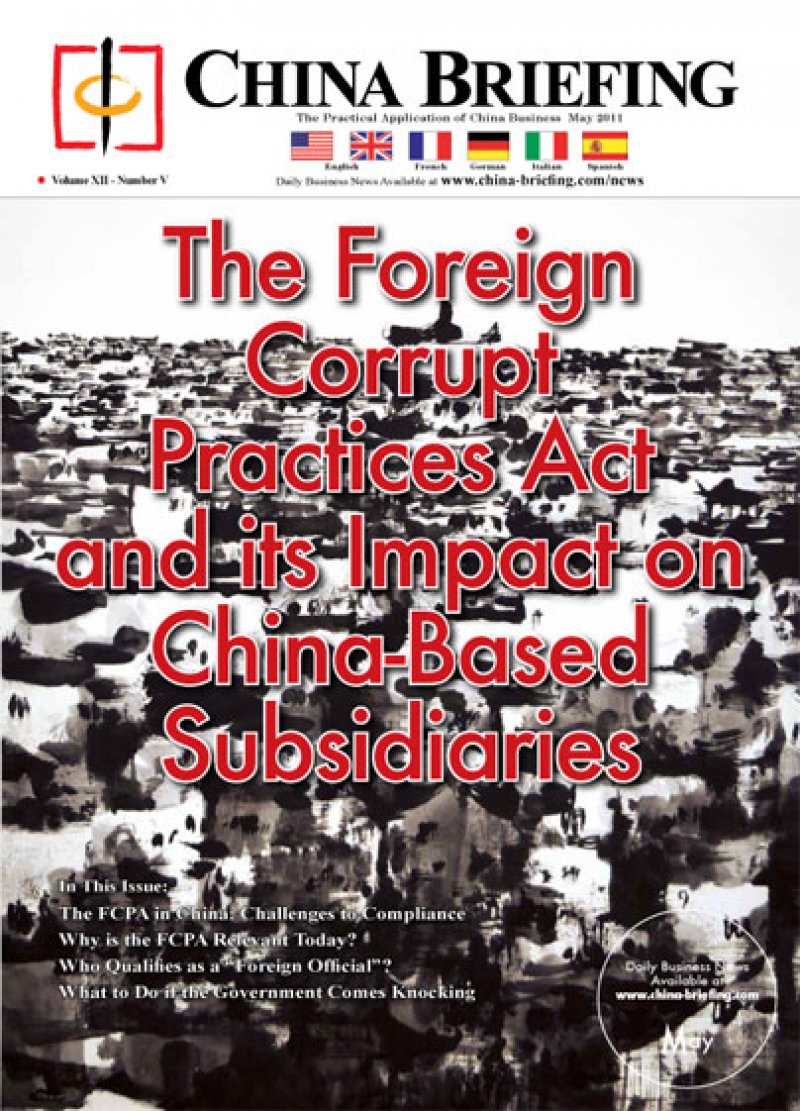
The Foreign Corrupt Practices Act and its Impact on China-Based Subsidiaries
Published: May 2011In China - where red envelopes of cash (hongbao) are not always reserved for Chinese New Year, gift giving plays a large role in developing relationships and entertainment is particularly important in business transactions - companies can find themselves in a delicate situation when it comes to the definition of bribery.
No. of Pages: 12 pages
In this issue:
- The FCPA in China: Challenges to Compliance
- Why is the FCPA Relevant Today?
- Who Qualifies as a “Foreign Official”?
- What to Do if the Government Comes Knocking to Discuss Your FCPA Compliance?
In China - where red envelopes of cash (hongbao) are not always reserved for Chinese New Year, gift giving plays a large role in developing relationships and entertainment is particularly important in business transactions - companies can find themselves in a delicate situation when it comes to the definition of bribery. This is particularly true when it comes to business dealings with foreign officials, a topic addressed by the U.S. Foreign Corrupt Practices Act (FCPA).
The FCPA prohibits companies from making payments to foreign officials for the purpose of obtaining or retaining business. It applies broadly to U.S. companies and individuals, companies that have issued securities registered in the U.S., employees and agents of U.S. businesses, and foreign nationals and businesses that cause prohibited acts in the U.S. The FCPA is not an issue that can just be merely tossed into an employment manual also because even just dealing with third party “brokers” between a U.S. business and a Chinese entity can lead to violations. American companies or individuals who enter joint ventures with foreign partners, as well as those who hire foreign agents or distributors in China, must be extremely cautious of the vicarious liability that they may face as a result of a third party’s violation.
More than twenty-seven major investigations involving bribes in the tens of millions have been successfully prosecuted in the past seven to eight years, and analysts predict that the situation is getting stricter. The most recent example of this is IBM, which paid $10 million to settle FCPA charges in March of this year, following illegal payments made to Chinese government officials through training trips, involving two IBM-China managers and over 100 employees.
American companies hoping to retain business in China, as well as American companies with the desire to enter the market, face an imperfect and dubious business environment with respect to the FCPA. Beyond cultural expectations and general business practices, China has another layer of difficulty for FCPA compliance, as the country abounds with employees of state-owned enterprises and semi-governmental organizations which may or may not be “foreign officials.” We discuss this topic in great detail.
This issue is dedicated to helping companies understand the FCPA and establish controls to prevent (and, if necessary) resolve FCPA noncompliance. Special thanks in this issue to Burr Pilger Mayer and Locke Lord Bissell & Liddell LLP for contributions.

